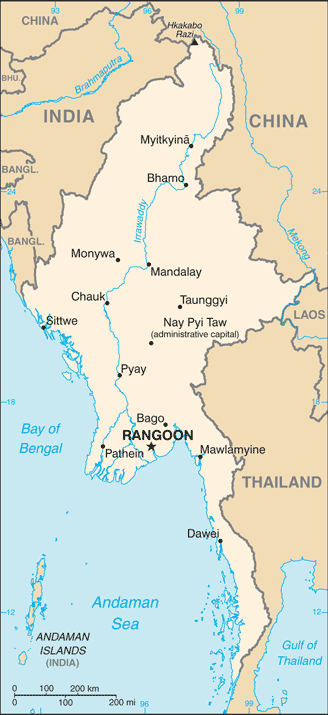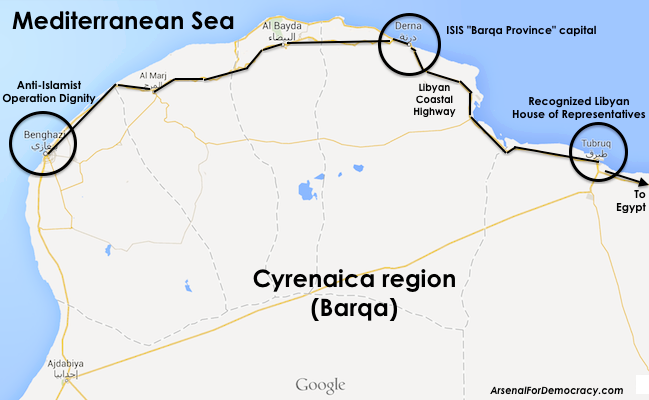 After an ISIS terrorist attack in Tunisia’s capital left 23 dead, Tunisia’s new government announced the deployment of the Tunisian Army to protect major population centers. Reuters:
After an ISIS terrorist attack in Tunisia’s capital left 23 dead, Tunisia’s new government announced the deployment of the Tunisian Army to protect major population centers. Reuters:
“After a meeting with the armed forces, the president has decided large cities will be secured by the army,” the president’s office said in a statement.
[…] the decision comes after a cabinet meeting with the three armies and the High Security Council attended by President Beji Caid Essebsi.
Essid stressed that the Tunisian authorities were working to prevent the re-occurrence of similar terrorist operations, noting “that any other terrorist operation will have very serious consequences for the country”.
The prime minister pointed out that the army and security agencies are equipped with everything they need to defend the country and cooperate with their allies. A deal to purchase eight US made Black Hawk helicopters is being concluded and the helicopters are expected to arrive in Tunisia during the second half of this year, Essid said.
It’s a very unusual move to deploy the Tunisian Army domestically, in contrast with peer nations across North Africa and the Middle East. Keeping the Army on the border or in the barracks was a core (self-preservation) principle of modern Tunisia’s founder, Habib Bourguiba, and has been maintained to present day. Badra Gaaloul wrote for the Carnegie Endowment for International Peace about this atypical trend back in November 2011, less than a year into the Arab Spring:
The political and social prominence that the military has assumed over the last year [2011] is unprecedented in Tunisia’s history. Unlike Egypt or Algeria—where the military beds with both politician and businessman and seeks the protection of its own economic interests—the Tunisian counterpart lacks political experience, as former regimes have deliberately kept it far away from the political sphere. This strategy dates to 1962, when the military fell out of favor with the first post-independence president, Habib Bourguiba, after a Lazhar Chraiti’s attempted coup. After the imprisonment or execution of key officers, Bourguiba restricted the army’s power through institutional mechanisms; in 1968, he gave the paramilitary National Guard (technically a civilian force) oversight over the army—and this arrangement has generated a long-standing antagonism ever since.
Zein El Abidine Ben Ali followed Bourguiba’s footsteps. His crackdown on the military was the harshest in its history. Ben Ali (himself from a military background) focused on preemptively weakening the army and monopolizing power by marginalizing the military establishment: in 1991, he accused a group of officers of plotting a coup. The officers maintained that the charges against them were fabricated to discourage others from thinking about a rise to political power through the military. Officers accused of involvement or belonged to Islamist groups were imprisoned, placed under house arrest, or forced into early retirement. Between 1991 and 2011, the total number of personnel was reduced to about 40,000. Ben Ali reduced the ministry of defense’s budget, delayed promotions, and introduced a compulsory retirement for often the most competent officers. The military’s role was strictly defined as defending the country, contributing to economic development, dealing with natural disasters, and taking part in UN-led global peacekeeping efforts.
Although the Tunisian Army took center stage again very briefly during the late 2010 Tunisian Revolution that sparked the Arab Spring, the Army restricted its role to protecting voting sites from attacks and filling in for police until the latter returned to their jobs. The police and internal security forces were spooked by the initial uprising, which began as a protest against chronic abuses by police that have fostered a climate of mass resentment and terrorist sympathizing for many years in Tunisia.
It seems likely that the huge gap between public support for the non-meddlesome Tunisian Army and public hatred for the abusive police and security forces may have encouraged the decision to involve the Army more heavily in the aftermath of the terrorist attack in Tunis. However, the longer the Army finds itself in the role of a police force and domestic counterterrorism force, the likelier it becomes that it loses credibility and support. Moreover, it may come to be seen as bearing shared responsibility with the Old Guard leadership of the new coalition government for any crackdown that is probably about to happen.




 The counterinsurgency campaign has targeted ethnically Chinese citizens in the remote frontier region and pushed tens of thousands of refugees across into China, both developments that can’t be welcome to the leadership in Beijing and has probably raised hackles even before the deadly air raid incident. The alleged rebels in Burma are mostly ex-Communists associated previously with a Chinese-backed insurgency before the Myanmar junta’s creation in the 1988 coup.
The counterinsurgency campaign has targeted ethnically Chinese citizens in the remote frontier region and pushed tens of thousands of refugees across into China, both developments that can’t be welcome to the leadership in Beijing and has probably raised hackles even before the deadly air raid incident. The alleged rebels in Burma are mostly ex-Communists associated previously with a Chinese-backed insurgency before the Myanmar junta’s creation in the 1988 coup.
